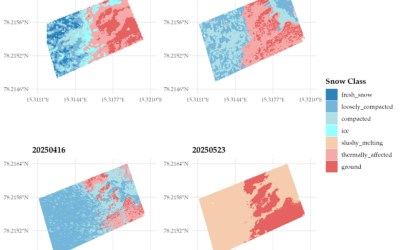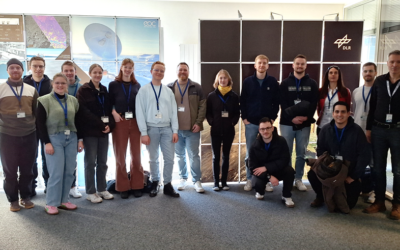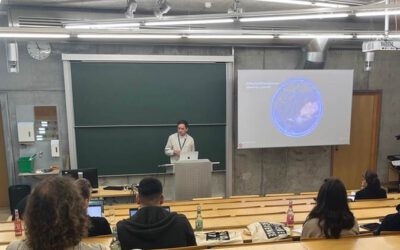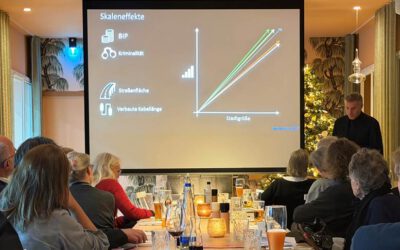The Scientific Catholic Student Association Unitas-Hetania in Würzburg has invited Hannes Taubenböck to give an evening lecture in their seminar series on the 22nd of October 2025. He presented a lecture titled “Diagnose »homo sapiens« – Was sehen Erdbeobachtungssatelliten und wie kann das der Menschheit helfen?” (engl.: Diagnosis “homo sapiens” – What do earth observation satellites see and how can this help mankind?).
In this lecture, Hannes Taubenböck illustrated how satellites make the invisible visible. They help to measure trace gases and temperatures, detect unevenness on the ground with millimeter precision from space and reveal long-term trends and changes in our environment. He introduced the fascinating topic of earth observation and with the use of informative images showed what this technology can do and how it can be used to the benefit of society. The presentation was followed by a lively discussion diagnosing “homo sapiens”.









